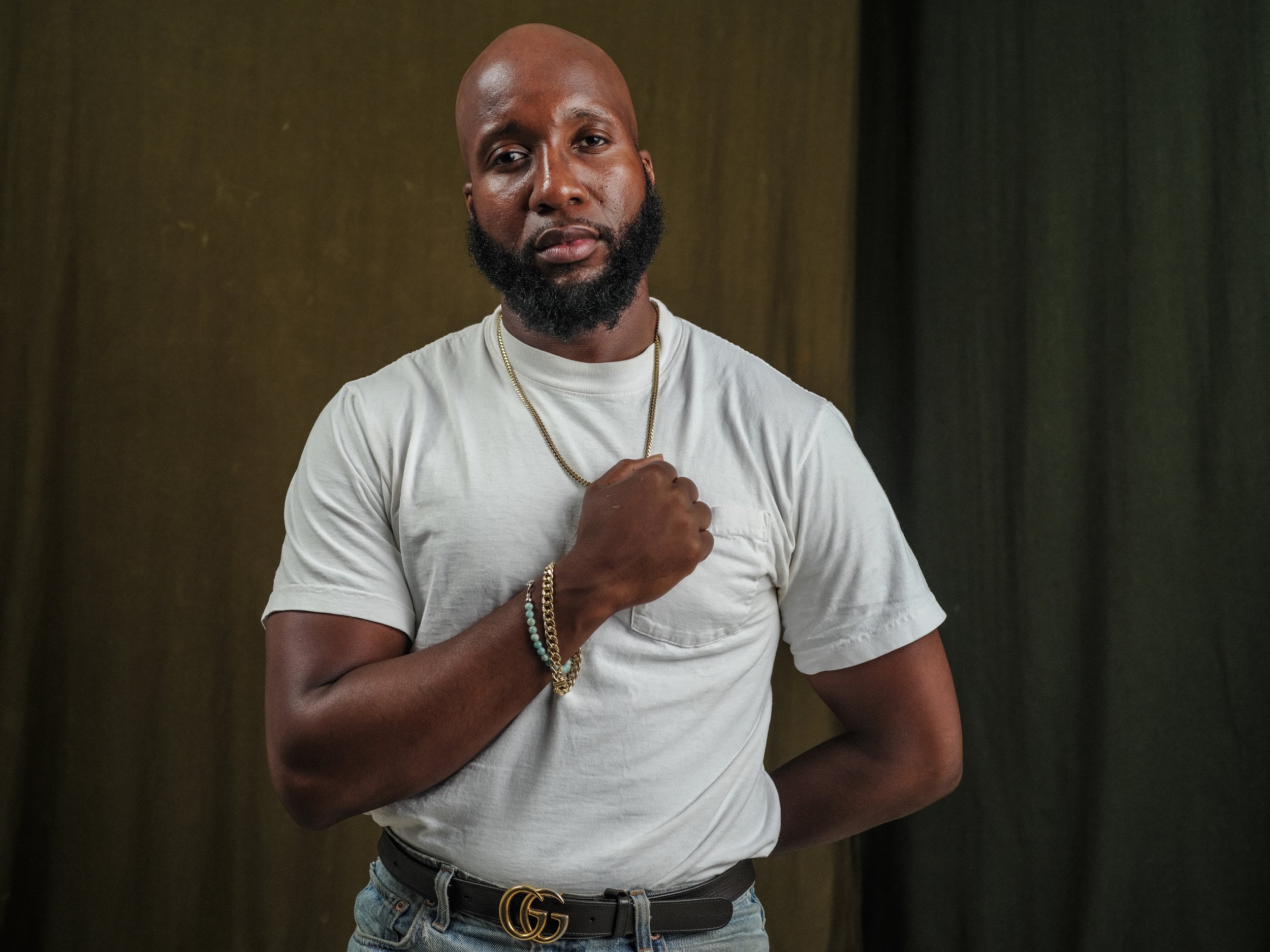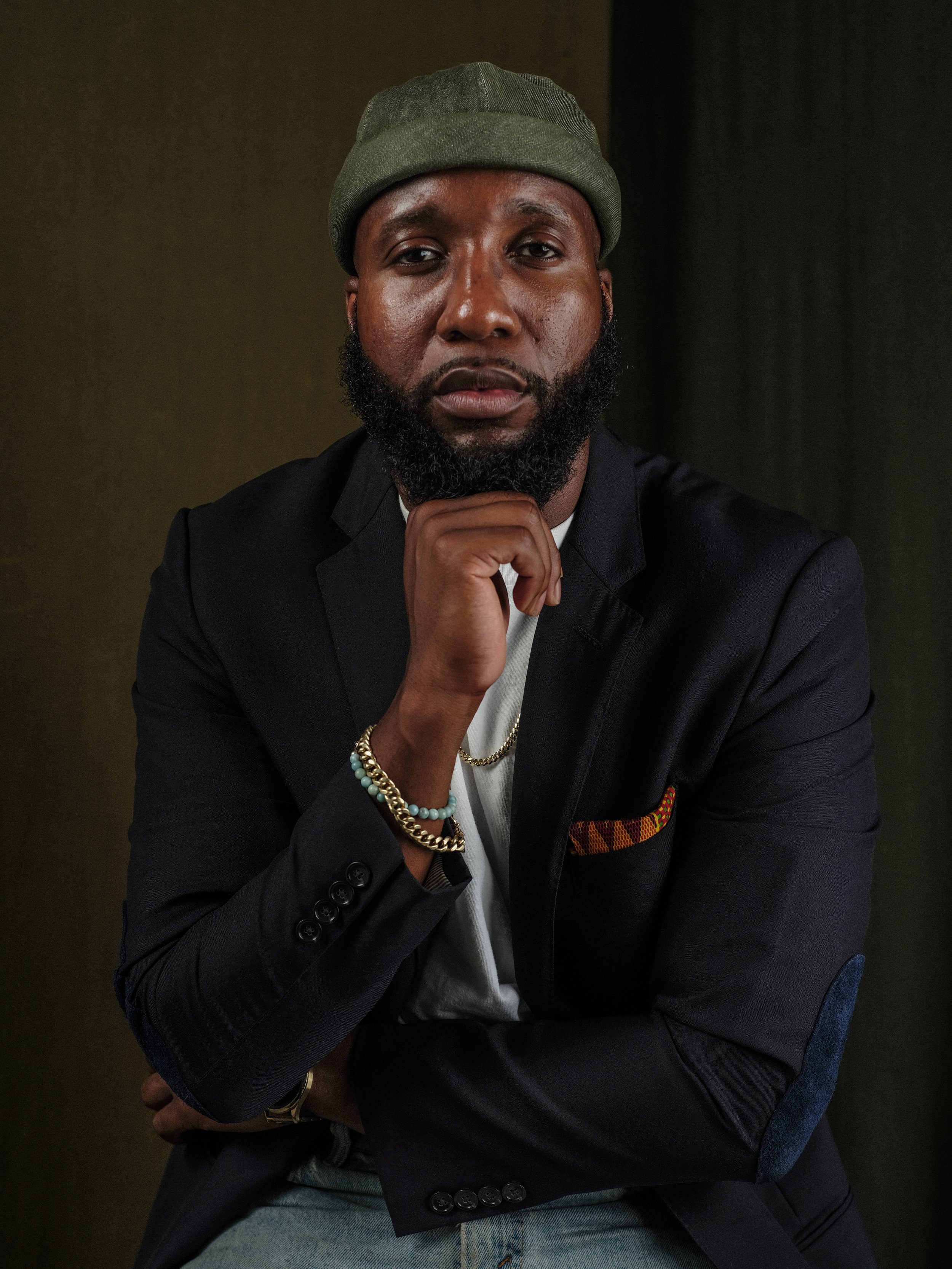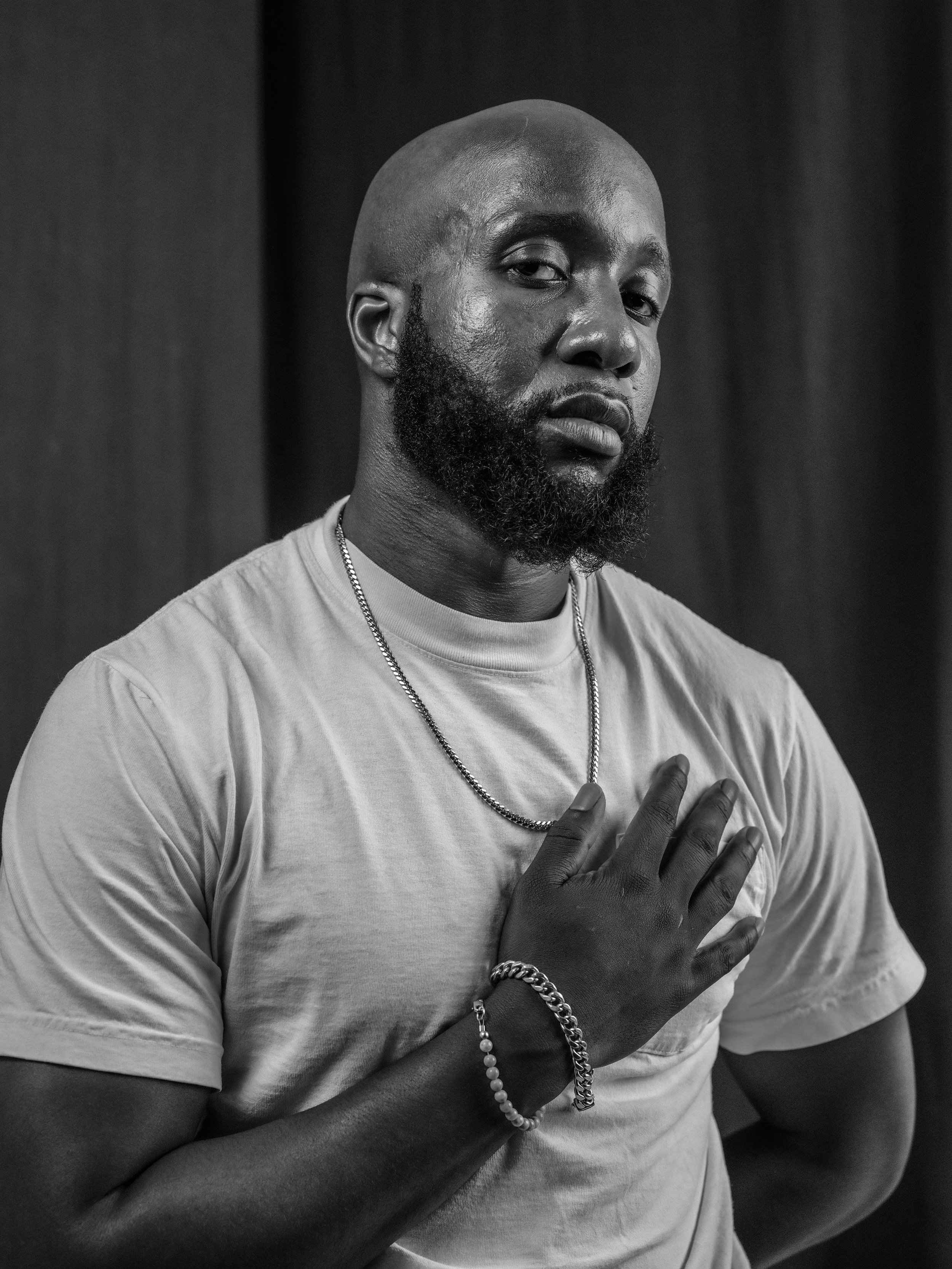Rewriting Community's Story
Jonathan Pitts-Wiley's lens at The Slate Studio reveals layers of quiet strength as Aiyah Josiah-Faeduwor reflects on his path. His journey began in the heart of public housing. As the middle child of five siblings raised by a single father from Sierra Leone, Aiyah learned early on that leadership isn't about glory or recognition – it's about sacrifice and doing what's right.
"My leadership journey probably realistically began being a middle child of a five-sibling household raised by a single dad," Aiyah reflects, on his childhood marked by both struggle and inspiration. "My dad's from Sierra Leone, West Africa. And we grew up in public housing, public assistance, all the public schooling, all of that."
Aiyah's father, an engineer with five advanced degrees, could have continued pursuing his own American dream. Instead, he chose to fight for custody of his children, a rare occurrence that left a lasting impression on young Aiyah.
"I remember being young and understanding the sacrifice he was making," Aiyah says, his eyes distant from the memory. "He didn't do it for any glamor, he didn't do it for any recognition, there was none of that. It just was. This is the right thing to do."
This early lesson in selfless leadership set the stage for Aiyah's own journey. As he watched his older brothers choose the streets over education, ending up in the criminal justice system, Aiyah made a pivotal decision. He would be the example for his younger sisters, pushing himself out of his Boston context to apply and get into Brown University.
"I ended up being the first of my family to graduate high school in the U.S.," Aiyah says, pride and determination evident in his voice. "I wanted to be an example for my little sisters."
This desire to pave the way for others has become the cornerstone of Aiyah's leadership philosophy. "It's not this solo journey," he explains passionately. "The idea of being this CEO who has this top dog type energy – no, it's really about who you put on your back."
From his time as an AmeriCorps member working in Rhode Island's public high schools to his current role as a commercial lending officer at a community bank, Aiyah has consistently sought to uplift those around him. His work focuses on getting dollars to Black and Brown entrepreneurs, always with an eye toward community impact.
"How do we really look out for a community?" Aiyah asks rhetorically, leaning forward with intensity. "How do we really make sure that we're not just looking for the best or the people with the highest credit scores, et cetera, the people who are going to be able to help the most other people, the people who are bringing businesses and bringing ventures to the forefront that are gonna uplift the community."
This collaborative approach hasn't always been straightforward in a capitalist system that often prioritizes competition. But Aiyah's unwavering commitment to this philosophy has begun to influence those around him, changing how his teams work and, he believes, transforming the community.
Aiyah recalls his challenges and the importance of vulnerability in leadership. He recounts a challenging moment when he was fired from the Providence Playing Department, a setback that initially shook him but ultimately led to new opportunities.
"I think that was like really being okay with whatever changed in the path," Aiyah says, his voice carrying a hard-won wisdom. "Being okay whenever the universe or God or whatever, believe in or whatever you see out there, says, not this, not now, not her, not him."
This ability to reframe setbacks as redirections has been crucial in Aiyah's journey. It's a mindset he's cultivated over time, allowing him to bounce back faster and be more resilient each time he faces a challenge.
Perhaps this resilience is more evident than in Aiyah's work with his family's West African restaurant. When faced with financial difficulties, Aiyah boldly decided to be transparent about their struggles, launching a GoFundMe campaign that raised over $70,000 from community support.
"I think it just reminded us as a state. It was something that I think helped show that even not being from here, this is a state that takes care of its people and takes care of the people who value and are part of this community," Aiyah reflects, his voice filled with gratitude and wonder.
As our conversation draws to a close, Jonathan captures the conviction in Aiyah's eyes, and his redefinition of leadership becomes crystal clear. It's not about being at the top but about lifting others. It's not about avoiding mistakes but being vulnerable enough to share them. And most importantly, it's about recognizing that authentic leadership is as much about support as it is about direction.
We see a powerful testament to the transformative power of community-focused leadership. From the public housing of his childhood to the business and nonprofit worlds he navigates, Aiyah continues redefining what it means to be a leader, one vulnerable, collaborative step at a time.



Portraits by Jonathan Pitts-Wiley


